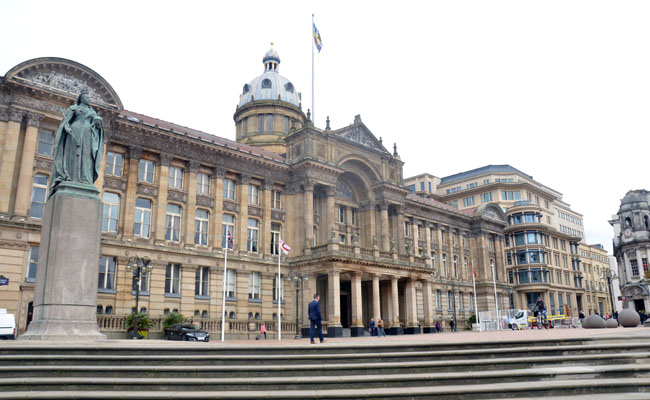Bridge move on the A446 near the Interchange Station site in Solihull (photo: HS2 Ltd)
Birmingham: The development of HS2 in the West Midlands will turbocharge the economic recovery from the coronavirus pandemic as it brings forward 175,000 new jobs and generates some £20 billion investment.
High speed rail will also accelerate the progress towards a zero carbon West Midlands by 2041, set out in the #WM2041 strategy, in part through creating capacity on the existing rail network for improvements to local passenger and freight services.
These are just some of the benefits to businesses, people and places laid out in the Midlands HS2 Growth Strategy 2021: The Defining Decade – The Midlands high speed path to recovery published today.
It describes how the West Midlands will be transformed in the next decade highlighting by 2030 the region will have two new world class, high speed rail stations, which will be accessible by two million people.
And how the building and operation of HS2, and more importantly the investment opportunities its arrival unlocks, will result in more than 175,000 new jobs; £20bn additional economic output; and a comprehensive public transport system that encourages sustainable travel.
As well as setting out how authorities and organisations are working together to make the most of the project – the document also looks at progress made over the six years since the publication of the original HS2 Growth Strategy.
The region is seeing unprecedented investment in its transport network, including the four Metro tram line extensions currently under construction and new commercial and housing developments planned around the Curzon Street and Interchange Stations. Such is the progress that the jobs and investment totals have been revised upwards for the refreshed strategy.
Mayor of the West Midlands Andy Street said: “While the HS2 train may not be here for a few years yet, we are already seeing exactly how major infrastructure investment accelerates regional growth.
“So far 13,000 jobs, including more than 400 apprenticeships, have been created across the project, and more than 300 companies in the Midlands have been working in the HS2 supply chain – with even more to come.
“With thousands of jobs already created, it is now clear that our earlier projections were too cautious and our latest research suggests the project could eventually lead to around 175,000 new jobs for the West Midlands.
“Before the Covid-19 pandemic the West Midlands was the fastest growing regional economy and the opportunities offered by HS2 were a key part of this success. Post pandemic it is even more vital as an anchor to drive our recovery forward.
“This strategy will now guide us as we seek to maximise investment and seek bold new opportunities presented by HS2. We must make the most out of this once-in-a-generation opportunity.”
HS2 Minister Andrew Stephenson said: “HS2 will drive forward economic recovery after the pandemic. There is no better example of this than in the West Midlands, where HS2’s joint venture partner BBV is set to be one of the biggest recruiters over the next two years.
“Pre pandemic, we saw an economic renaissance in the West Midlands. HS2 will work hand in glove with the WMCA’s HS2 Growth Strategy and local leaders to upskill local people and bring in new investment to the region.
“As the world-class high-speed railway continues to take shape, HS2 will deliver on its excellent track record of creating and sustaining new jobs across all four corners of the UK, as part of the Government’s Plan for Jobs.”
Mark Thurston, Chief Executive Officer of HS2 Ltd, added: “This new HS2 Growth Strategy demonstrates the transformative impact HS2 is already having on the region, supporting thousands of jobs and creating many more opportunities for local businesses as we recover from the pandemic.
“It also evidences the more far-reaching benefits HS2 is bringing to the West Midlands, including attracting inward investment, creating massive regeneration and employment opportunities around the two new stations, as well as helping our fight against climate change by providing a cleaner, greener way for people to travel.”
Cllr Ian Courts, WMCA portfolio lead for environment, energy and HS2, and leader of Solihull Council said: “This an economic growth project for the whole of the West Midlands.
The strategy shows HS2 will have a positive impact across the region, not just in the developments planned around Curzon Street in Birmingham, or HS2’s Interchange Station in Solihull, but also through projects like the Metro extension to Brierley Hill.
“HS2 can also play a key role in achieving our climate change targets. One of our next steps is to develop our strategy with Government to show how HS2 can deliver improvements to our local transport network, support our climate change ambitions and further develop our green economy.”
The West Midlands was the first region in the UK to launch an HS2 Growth Strategy, publishing its original strategy in 2015, which mapped out how the region aimed to capitalise on the opportunities HS2 created, as well as how the region would respond to challenges created by the largest infrastructure project in Europe.
